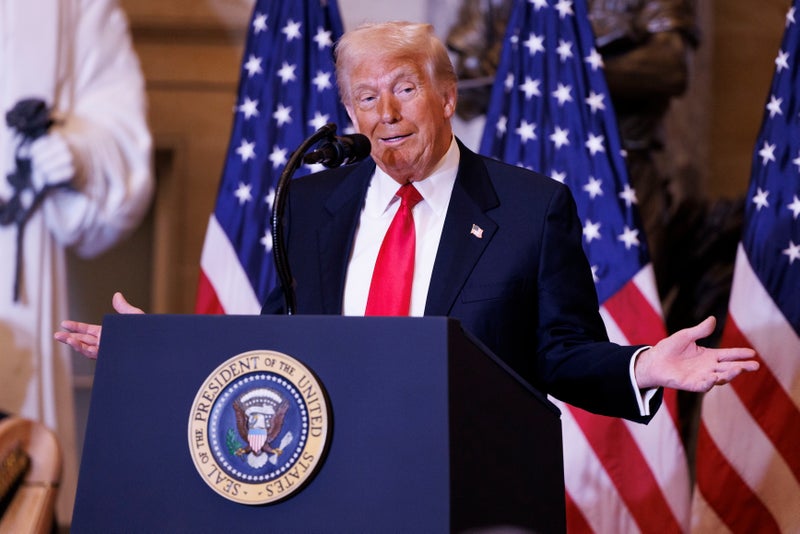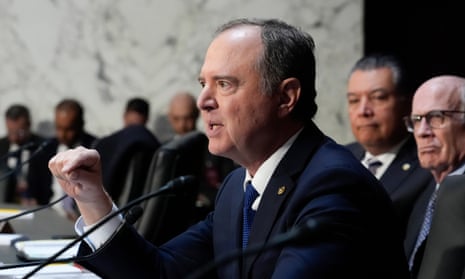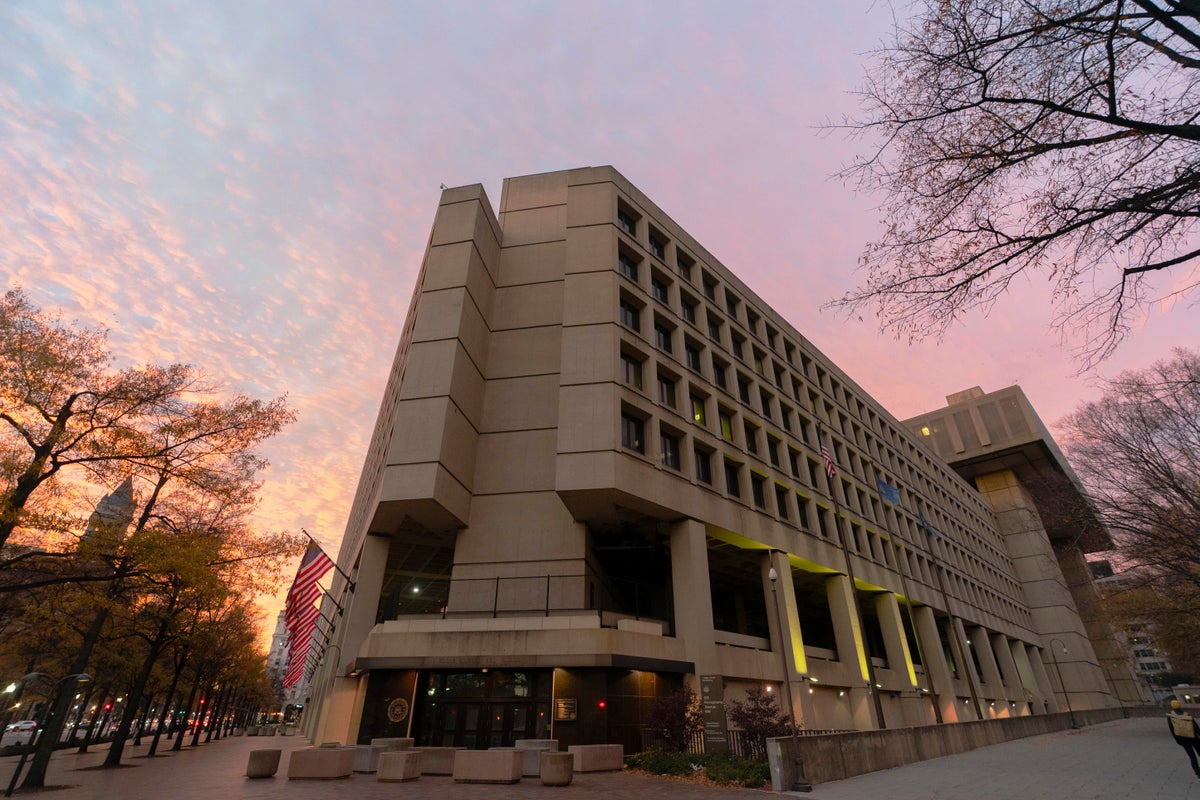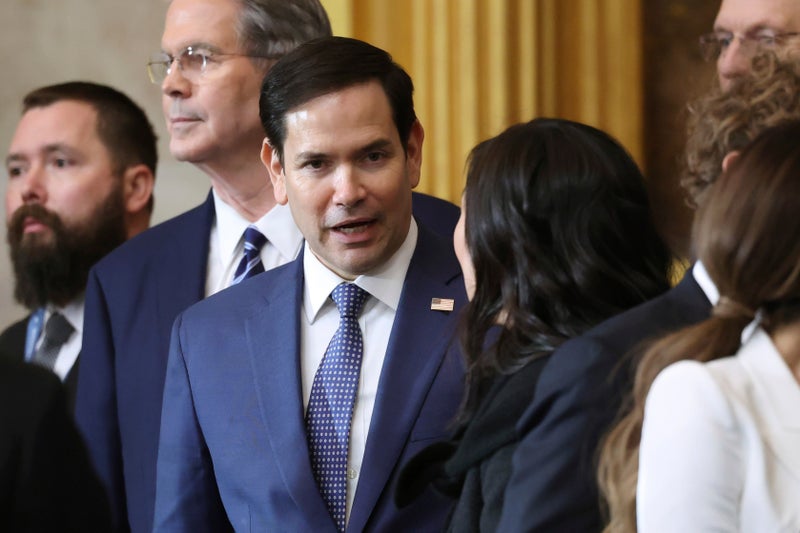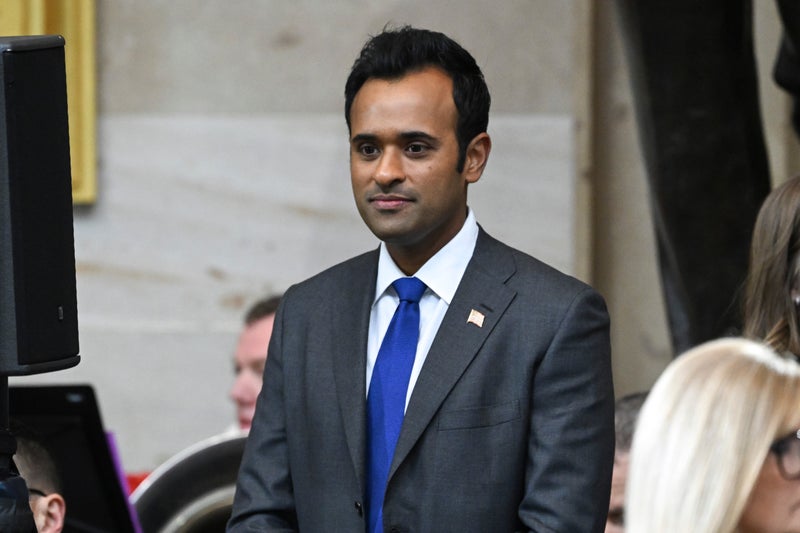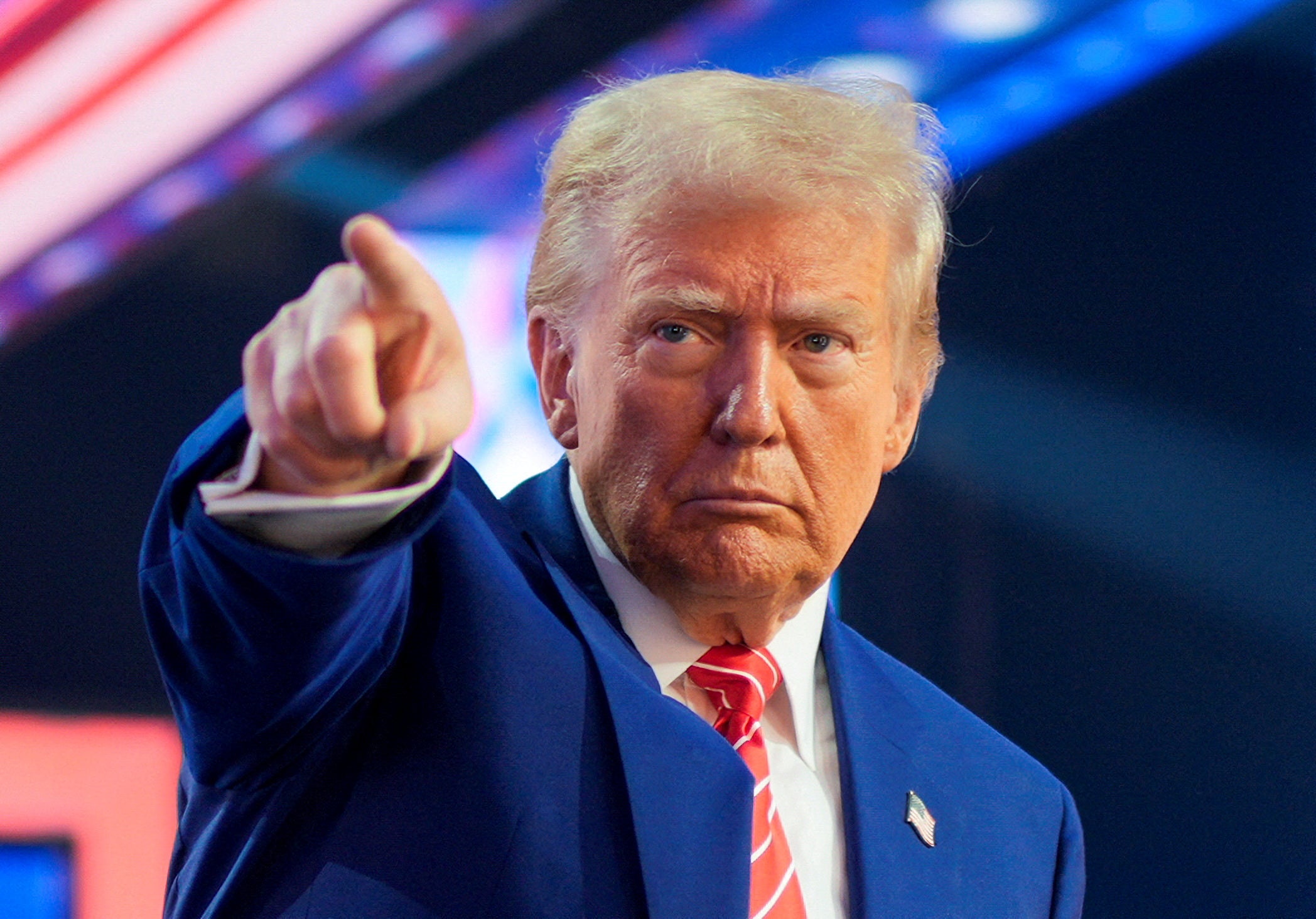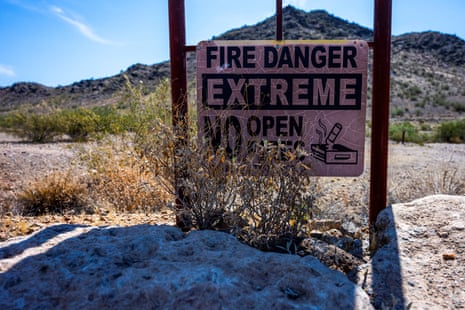Trump’s blitz to expand his power is direct threat to democracy, experts say
Trump’s blitz to expand his power is direct threat to democracy, experts say
Share:
Executive actions aims to test limits of president’s authority and perhaps win backing from conservative supreme court. Donald Trump’s spate of executive orders include many aimed at expanding his presidential powers in areas that pose threats to the rule of law and democratic norms in the US, say legal experts. Trump’s orders include the abrupt firing of 17 agency watchdogs called inspectors general without giving Congress the required 30 days’ notice, the rejection of birthright citizenship for children of undocumented immigrants, which is guaranteed by the 14th amendment, and pardons for more than 1,500 people convicted for their roles in the January 6 Capitol insurrection.
![[a woman stands in front of a tree]](https://i.guim.co.uk/img/media/e23d99cf9cd8b72bcea73af882e342768ce5ffa7/0_0_3500_2101/master/3500.jpg?width=445&dpr=1&s=none&crop=none)
Congressional Republicans have offered scant criticism of Trump’s power plays, but Democrats have accelerated their attacks on Trump’s moves: about two dozen Democratic state attorneys general have filed lawsuits, and federal court judges have temporarily halted two of Trump’s more extremist moves. The Guardian has learned that a group of inspectors general also are expected to file a lawsuit challenging their dismissals by Trump and are in talks with law firms to that end, according to a source familiar with the matter.
![[a woman speaks surrounded by other people outside the treasury building]](https://i.guim.co.uk/img/media/a548103854b133be2e0d6a4c9e0a539ddb193fd0/0_377_5026_3016/master/5026.jpg?width=445&dpr=1&s=none&crop=none)
Federal judges have backed separate lawsuits by state attorneys general and civil rights groups halting Trump’s efforts to nullify birthright citizenship for children of undocumented immigrants born in the US, which was a facet of his blitz to deport undocumented immigrants. Similarly, after the White House budget office issued a directive that could have briefly blocked $3tn in federal funds from being sent to numerous state and federal programs, 23 state attorneys general persuaded two federal judges to temporarily stop the measure from taking effect.
Further, congressional Democrats and labor unions are challenging some draconian cost-cutting moves that Elon Musk – Trump’s biggest donor and the world’s richest man – is pursuing at the so-called “department of government efficiency” (Doge), which is facing fire for its gutting of the US Agency for International Development. Legal experts say Trump’s firehose of executive actions is aimed at enhancing presidential powers and may be intended to get some cases before the supreme court in hopes that the conservative majority will rule in favor of his expansive views of executive power.
“At bottom, President Trump’s opening salvo of executive orders is consistent with his administration’s view that the executive branch is not co-equal but predominates over all three branches,” the ex-federal judge John Jones, who now is president of Dickinson College, said. “Likewise, his administration has chosen to simply ignore laws it deems unconstitutional. “I believe those who have standing, such as state attorneys general, will increasingly challenge these orders in court. And it is my hope that the judiciary, which is constitutionally co-equal, will serve as a bulwark and prevent a further deterioration of the rule of law.”.
That view is echoed by Arizona’s Democratic attorney general, Kris Mayes, who sees state attorneys general playing a key role in halting some of Trump’s moves. “We will not hesitate to challenge actions that violate the constitution or threaten fundamental rights – and we will win,” Mayes said. Former justice department officials also offer scathing criticism of Trump’s rapid-fire moves to expand his authority. “Trump is determined to maximize the power of the presidency,” said Ty Cobb, a former federal prosecutor who was a White House counsel during Trump’s first term.
“He believes he’s omnipotent and that anything he does is beyond reproach. That’s clearly not the case. He does not have the ability to amend the constitution through executive orders.”. Cobb predicts that “nothing is going to slow Trump down. He’s going to test the limits of his powers until he leaves office.”. Many of Trump’s executive orders were presaged in his election campaign, but their volume and speed look designed to swamp political foes and echo the ex-Trump strategist Steve Bannon’s call to “flood the zone” to overwhelm Democratic opposition and media attacks.
Trump has defended his firings of the inspectors general by falsely calling them “standard” and a “very common thing to do”. Likewise, Trump has tried to defend his sweeping pardons by claiming baselessly that those convicted were victims of a “weaponized” justice department, which perpetrated a “grave national injustice”. On another battlefront at the Department of Justice, about a dozen senior lawyers who worked under special counsel Jack Smith, who charged Trump with seeking to illegally overturn his 2020 loss to Joe Biden, have been axed, raising alarms about how justice department leaders seem in sync with Trump’s threats of exacting revenge against his political foes.

